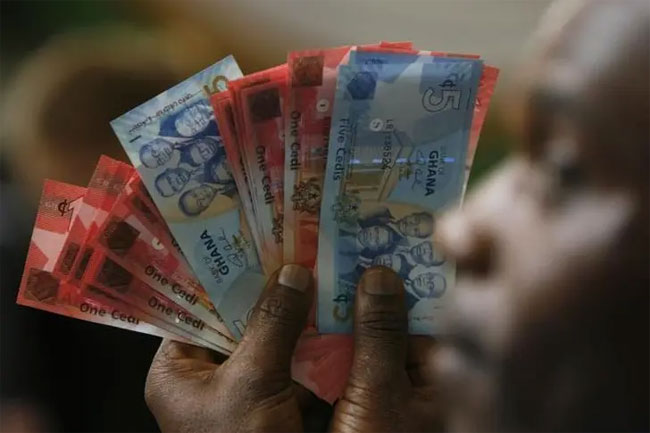Ghana fails to reach debt deal with international bondholders
April 15, 2024 10:12 pm
(Reuters) - Ghana has failed to agree a deal with two bondholder groups to restructure $13 billion of international bonds, the government said on Monday, in a blow to its efforts to swiftly emerge from default and economic crisis.
Talks were on hold for now after the International Monetary Fund indicated that the deal would not fit its debt sustainability parameters, which set out how much debt it thinks a country can afford, the government said in a statement.
Ghana had been in formal talks with two groups holding its international bonds since March 16 - one “international” group of Western asset managers and hedge funds and another one including regional African banks.
The regional African bondholder group had also rejected part of the proposed rework, including an option to retain the original value of the bonds with a longer maturity and lower coupon.
In December 2022, Ghana defaulted on most of its external debt of about $30 billion as it fell into economic crisis. Debt costs and inflation surged, reserves dwindled and the government found itself unable to access international bond markets.
Growth in the world’s second biggest cocoa producer has since started to recover, with the economy growing 2.9% in 2023, better than the 2.3% the IMF predicted in January.
“The Government is actively working on solutions that it believes would be consistent with IMF program parameters under the set of policies currently being discussed, with the objective of reaching a mutual agreement acceptable to all parties,” the government said in the regulatory statement.
The dollar-denominated bonds, known as eurobonds, fell between 2.6 and 3.2 cents, with most of the maturities trading between the 46 and 48 cents in the dollar mark, according to Tradeweb data.
Regional bondholders believe the Ghanaian economy’s strong performance compared to the IMF’s original analysis could allow a deal to be reached by the end of 2024, Samuel Sule, Chief Executive Officer at Renaissance Capital Africa and financial advisor to the group, told Reuters.
The IMF approved a $3 billion, three-year loan program for Ghana in May 2023, contingent on Ghana implementing reforms and finishing a debt restructuring that the fund deems sustainable.
Ghana’s government said the IMF had assessed the proposed bondholder deal against debt sustainability thresholds from the first review of the loan program, which was finished in January. The second review, in which thresholds could change, is ongoing.
“IMF staff has determined that this working scenario is not in line with program parameters,” an IMF spokesperson said by email. “The IMF will continue to support the ongoing restructuring negotiations.”
An advisor to the international bondholder committee said in a statement that restructuring discussions would continue this week.
‘AT SOME POINT’
Ghana - together with Zambia and Ethiopia - is reworking its debt under the G20 Common Framework, a process set up during the COVID-19 pandemic to speed up debt overhauls.
However, progress has been slow, holding back the countries’ economic recoveries and access to much needed overseas cheap loans, aid and investment.
Zambia struggled to get its bond restructuring deal over the line amid objections from official creditors, though it eventually reached an agreement in principle in late March.
Ghana is “confident... at some point” it will reach an agreement with bondholders, Finance Minister Mohammed Amin Adam told a press conference on Saturday.
The IMF’s Ghana mission chief Stephane Roudet told the joint news briefing, held to coincide with a staff-level agreement on the IMF’s second review of its $3 billion loan programme, that the Fund needed to continue to see progress in talks with bondholders.
Ghana is aiming to cut $10.5 billion from its external debt repayments and interest costs due from 2023 to 2026. It reached an agreement in principle in January to rework $5.4 billion of loans with official creditors, which will need to confirm that the bondholder deal is comparable to what they offered.
The bondholder deal that had been proposed would have included a heavily discounted option of three bonds maturing between 2030 and 2038 with coupons of 5% until 2027 and 6.5% after. Another “PAR option” offering no principal reduction would have matured in 2043, with a 1.5% coupon.
Bondholders who signed up for either option would have also received a separate bond representing accrued “Past Due Interest”. This bond and the discounted options would have had a nominal, face value haircut of 33%.
Some bondholders had favoured the use of so-called state-contingent debt instruments, which could increase payouts if Ghana’s economy performs better on agreed metrics, as a way of bridging differences in their outlook.
Source: Reuters
--Agencies












